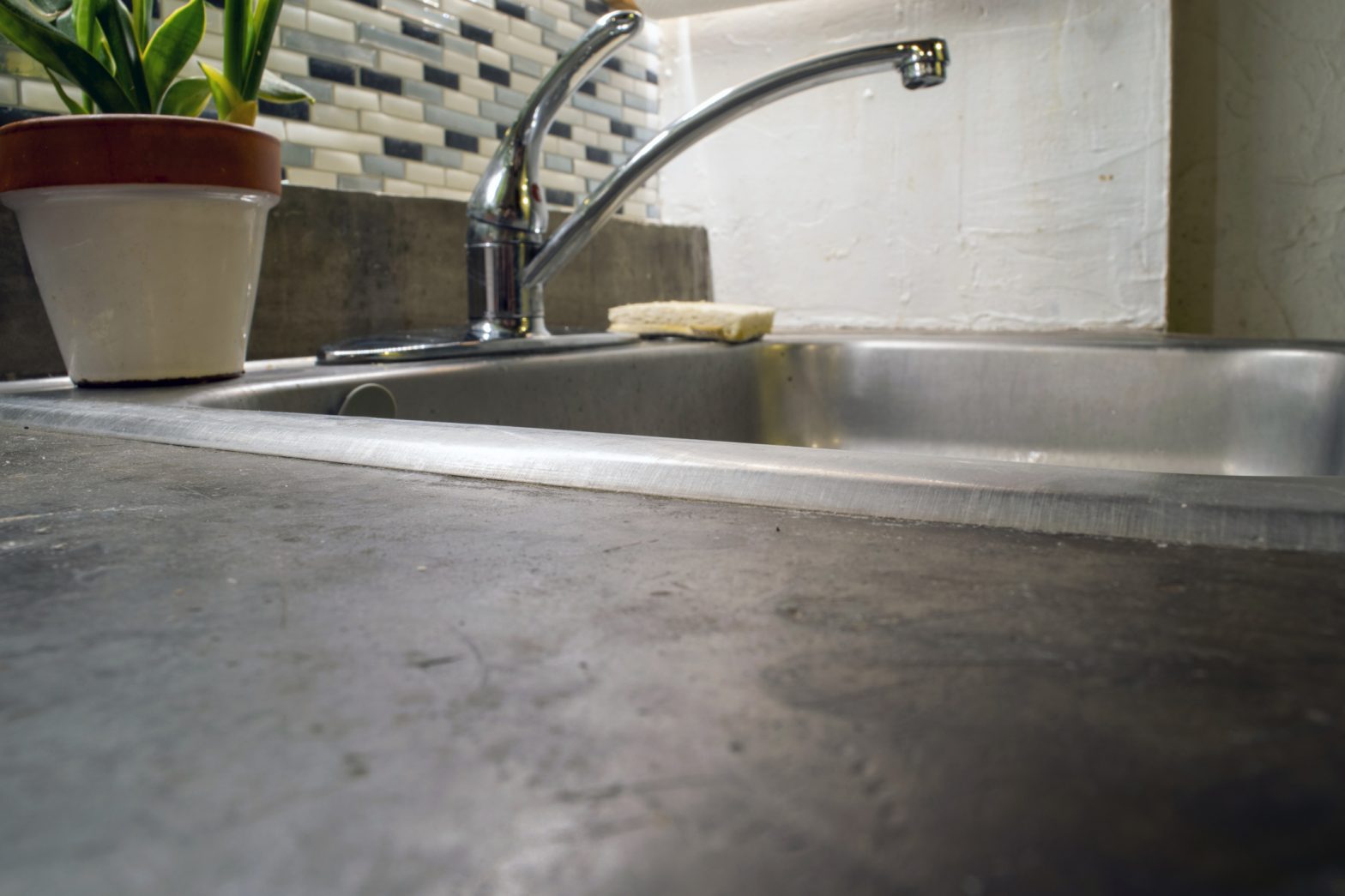
When choosing between granite and concrete countertops, there are several factors to consider, from pricing and heat resistance to appearance and color options. To help make your decision easier, the experts at Express Cabinet and Granite have put together a guide on both granite and concrete countertops.
A major pro of granite is that it is a natural stone that is heat resistant and requires little maintenance. You can also repair small chips at home without extensive tools. Granite is quarried from the ground and then cut into slabs for countertops. It is composed of feldspar and quartz, along with other minerals. Each piece is unique and has its own variation of color and pattern.
Because it is a natural stone, the samples do not always look like the actual colors of the granite. Granite also tends to be dark, which doesn’t always match the style of your kitchen. You are also limited in colors and patterns. Granite is also partially porous and requires periodic resealing, and also gives off a larger carbon footprint than concrete.
Granite also tends to be more expensive than concrete costing around $3,000 to $3,500 for 30 square feet installed.
Concrete is mixed and cast from cement and aggregate. It is then polished to a smooth surface. Concrete is a versatile material that can be tinted in any color or pattern to match the style of your kitchen. It is also heat and scratch resistant and is available in any size or shape. Concrete can also be made from recycled materials. It is also cheaper than granite at $2,000 to $2,410 for 30 feet of countertop installed.
One major con of concrete is that it takes a long time for it to be cast and cured. It also requires more maintenance to keep looking great and tends to crack over time. Concrete production also impacts the environment by using a lot of energy.
Neither material should be installed DIY-style. These materials are heavy and require professionals to fabricate and install them correctly. Once you select your granite slabs, we will shape and finish them to get your cabinets and cut-outs for your sink and other built-in. We will then bring them to your home and install them. This process can take around two weeks to complete.
Concrete countertops can be mixed and cast in your kitchen, but typically they will be cast in a separate location and then installed. For this process, a mold of your countertop is created that accounts for all of the built-ins and cut-outs. Once the mold is created, concrete is poured into it and then trowled until smooth. It is left to cure for up to a month and is then polished to a shine.
Both concrete and granite are strong materials that are scratch resistant. Granite requires less maintenance than concrete because even when polished to a shine, concrete is still porous. This means it can stain easily and even harbor bacteria and mold. To prevent this, concrete must be resealed every 1 to 3 years and waxed, in some cases monthly. Small cracks in the concrete can be patched as this material will crack over time.
Granite is also porous and requires resealing every year, with no further maintenance needed. You will just need to wipe up spills promptly and clean the countertop with only soap and water. Epoxy can be used to repair small chips.
When it comes down to it, both concrete and granite have great benefits for your kitchen. You have to consider the colors and patterns you want and how much time you have to maintain your countertops. To learn more about granite countertops, contact Express Cabinet and Granite today.